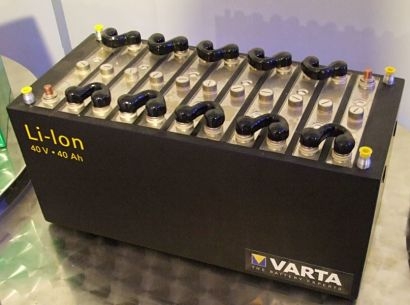
The aims of the project, named Synergy, will be achieved through improved anode and cathode raw materials and electrode formulation. The project is focused on developing step changes in the performance and environmental friendliness of lithium-ion batteries to meet the needs of electric vehicles (EVs). It combines the raw material, formulation, electrochemical knowledge and cell manufacture capabilities of Synthomer (including Synthomer’s polymer binder and William Blythe active material development teams), CPI and AMTE Power (formerly AGM Batteries).
Project Synergy will lead to manufacturing and performance improvements in the anode system. It will also focus on methods to improve the safety and environmental profile of cathode systems. The combined improvements are expected to reduce the costs of cell manufacture and help to realise the range and power output needed for the next generation of electric vehicles.
Innovate UK, the UK’s innovation agency and part of UK Research and Innovation, will fund the majority of the £1.1 million project as part of the ISCF Faraday Battery Challenge. The challenge is addressing key targets of automotive battery technology which will allow the UK to realise its commitment to move to full electrification and zero emissions vehicles.
“Despite significant improvements in battery technology, further optimisation of raw materials is needed to achieve the targets of the automotive industry” said Tom Castle, Market Development Manager at Synthomer. “Synthomer is a global supplier of polymer binders that are used commercially in high performance lithium-ion batteries and we are pleased to bring this expertise to the project. Synergy is another example of us collaborating with active material development teams to maximise the combined value of the active and binder to cell manufacturers and ultimately to consumers.”
Mike Butler, Business Development Manager at Synthomer subsidiary William Blythe, added that the challenges of developing next generation batteries are best addressed by collaboration and that William Blythe has a a significant R&D focus on developing next generation active materials for new electric vehicles and are active in several consortia
For additional information:

